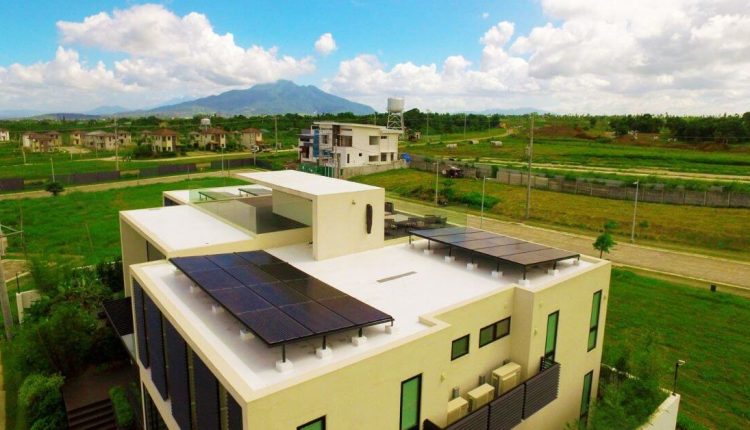6 Industries that Use Solar Energy in the Philippines
What are the industries that use solar energy in the Philippines?
- Real Estate
- Hospitality
- Manufacturing
- Agriculture
- Education
- Commercial
Overview
- The Philippines is experiencing a notable upswing in the adoption of solar energy across various sectors.
- Solar enhances Real Estate sustainability, Hospitality climate change response, Manufacturing efficiency, Agriculture practices, Education reliability, and Commercial operations in the Philippines.
- Solaric, as a solar panel provider, supports the transformative journey toward a brighter and greener tomorrow in the Philippines.
In the tropical embrace of the Philippines, a radiant revolution is underway as industries turn to the sun for more than just a golden tan.
The adoption of solar energy is experiencing a notable upswing, signaling a promising and sustainable future across various sectors. Mordor Intelligence’s 2022 report shows that the Philippines has 1,625 MW of solar PV installations, with an impressive 18% annual growth compared to the previous year.
Thus, this article will tackle the various industrial uses of solar energy today and how this cost-effective alternative guides the nation toward a cleaner, more sustainable tomorrow.
Real Estate
Integrating solar energy has become a strategic move, amplifying sustainability and operational efficiency in the real estate industry. Photovoltaic (PV) systems adorn rooftops and structures, offering a dual advantage of cost-effective energy production and a reduced carbon footprint.
According to the National Renewable Energy Laboratory, saving a dollar on electricity with solar panels can increase your home’s value by $20. Homes with solar panels also sell for four percent more, as mentioned by Zillow. This trend aligns with global preferences, where solar-powered buildings enhance property values and attract environmentally conscious tenants.
The growing demand for solar panels, especially among eco-conscious buyers, often boosts the value of homes with solar installations. How much your home’s value increases depends on where you live and the quality of the solar panels.
Hospitality
Climate change is a pressing global issue, and urgent action is crucial. Carbon dioxide emissions have surged by nearly 50% since 1990, leading to extreme weather events. The hospitality sector is feeling the impact, with rising costs and reduced tourism.
Cities and countries are responding with environmental policies. The hotel industry contributes 1% to global carbon emissions, and there’s a growing recognition of the benefits of Photovoltaic (PV) installations. Embracing solar energy through PV installations offers sustainability and energy efficiency, aligning with environmental responsibility and reducing carbon emissions in the face of climate change challenges.
Manufacturing
Manufacturing plants across the archipelago are fervently adopting solar technologies for a crucial reason – the integration of solar panels ensures a sustainable and efficient industrial future.
By strategically incorporating solar solutions, these factories not only reduce their environmental impact but also enhance operational efficiency. This move is crucial for addressing escalating energy costs, mitigating environmental concerns, and aligning with global trends that prioritize cost-effective and eco-friendly manufacturing practices.
Agriculture
Since solar power has a deeper impact on agriculture than just lighting, helping to shift the industry’s focus toward efficiency and sustainability, it has revolutionized traditional farming practices and has become a transformative force in the agricultural industry.
In 2015, the government invested P366.7 billion (US$7.2 billion), with 67% from the solar sector, generating 100,000 jobs. Solar energy enhances energy security and provides an economic alternative, especially during severe climate challenges like El Nino, highlighting its vital role in agriculture and broader economic advancements in the Philippines.
Education
Solar energy has become a trailblazing solution for the Philippine educational system, providing institutions with the electricity they require while fostering a sustainable culture.
Adopting solar technology strategically not only guarantees a dependable power source for schools but also functions as an educational tool, teaching students sustainable practices. The integration of solar energy and education showcases a forward-thinking approach, nurturing a generation in the Philippines that recognizes the importance of environmental responsibility.
Commercial
Solar energy is becoming crucial in the evolving Philippine business scene, changing how operations are conducted and promoting sustainability. Due to lower energy costs and a smaller environmental impact, many commercial buildings are adopting solar panels.
This shift not only meets immediate energy needs but also positions businesses as key contributors to the country’s renewable energy goals. Incorporating solar technologies in the commercial sector represents a practical and transformative commitment to a cleaner, greener future for Philippine commerce.
Key Takeaway
The industrial uses of solar energy in the Philippines point to a promising journey toward sustainability and efficiency. Solar energy goes beyond just lighting; it becomes a symbol of environmental responsibility. The statistics and initiatives discussed in this article not only reflect the current impact but also indicate the potential for a cleaner and more resilient future.
If you’re also interested in embarking on this transformative journey, consider Solaric as your solar panel provider. Renowned for pioneering solar solutions in the Philippines, our team supports forging a brighter and greener tomorrow for the nation.
Contact Solaric today.



Comments are closed.